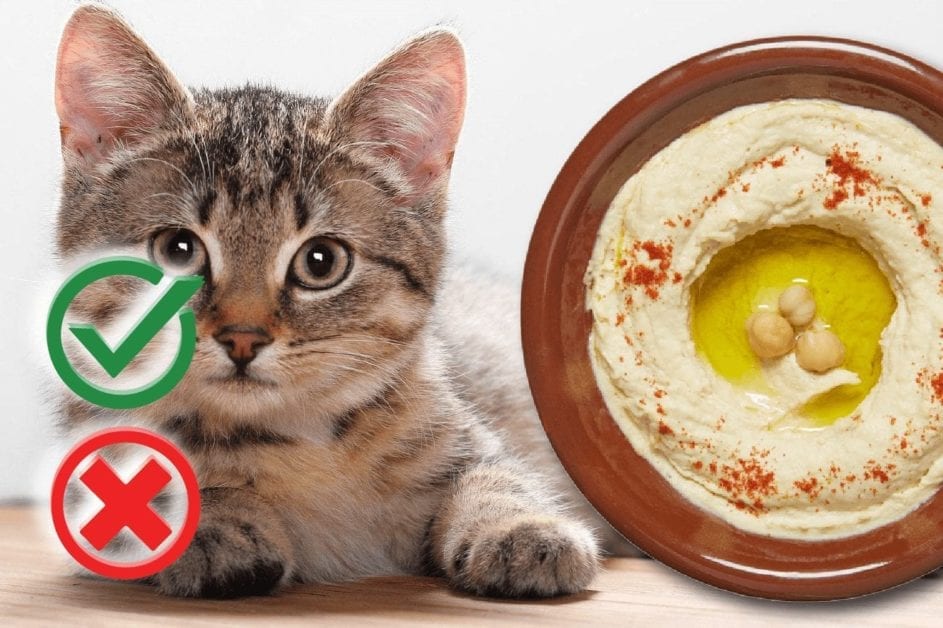Hummus, If you’re looking for this creamy and healthy snack today, you might be wondering if your pets can try it too.
This depends on the specific ingredients in your hummus. But overall, the common ingredient garlic makes hummus a potentially toxic treat for cats.
Specialist Recommendations
Cats are very delicate animals and they need to follow a diet that is rich in fats, proteins and, even if to a very small extent, carbohydrates.
For this reason it is best to always talk to your trusted veterinarian to understand together , based on age , sex , race , but above all your cat’s lifestyle , which diet is best suitable.
Vets recommend to keep your cat’s diet always and fairly balanced, paying attention not only to the quantity , but above all to the quality of the food.
If you choose to feed your kitty packaged foods, try to vary between dry and wet foods and carefully read the nutrition tables for canned foods. Most brand suggest certain doses in relation to the cat’s weight.
If your cat is neutered , pay attention to its diet to prevent certain problems from occurring in the future such as: diabetes , kidney problemsand obesity .
Can My Cat Eat Hummus?
Does hummus, a chickpea-based sauce, seem to be your cat’s favorite dish?
You shouldn’t be alarmed after all it is a recipe based on chickpeas, the most eaten and appreciated legumes by all.
Considering that legumes are foods that have a very high percentage of proteins we can assure you that cats can , in very small doses, eat them .
However, it is always advisable for them to take substances, such as proteins or equivalent, from foods that are more suited to their body and their lifestyle, but if they were to taste a little hummus it certainly does not hurt.
But,Hummus is not a sauce composed only of chickpeas, the recipe is prepared with ingredients such paprika , lemon juice,and garlic 3 things that shouldn’t be included in your cat’s diet.
So, avoid serving your cat hummus that can contain harmful ingredients such as garlic, your best choice is to make you own home maid hummus and exclude any harmful ingredients.
What Are The Benefits Of Chickpeas?
Chickpeas are rich in both fiber and protein and if given in small quantities they can only enrich your cat’s diet with vitamins, such as B6 and K. They are also rich in magnesium and iron.Chickpeas can also help prevent some cat health problems such as:
Blood Pressure: potassium and a low dose of sodium allow blood vessels to dilate, in this way the flow of blood is smoother, thus limiting high blood pressure.
Diabetes :is a disease that unfortunately could also affect felines.
Chickpeas, always consumed in small quantities, could prevent the onset of this disease.
Benefits for the intestine :the presence of fiber promotes digestion and consequently also the intestinal flow.
Obesity : unfortunately obesity for felines is a pitfall that is always around the corner.
Especially for neutered cats, the hormonal shift causes obesity over time.
Chickpeas, always in small quantities, could limit this risk as chickpeas give a sense of satiety to the cat by not allowing it to eat a lot.
As you have noticed, these are just some of the benefits that chickpeas can have on a cat’s nutrition.
However, other types of legumes, such as peas, if taken in limited quantities can represent a plus for your cat’s diet.
The Risk Of Cat Eating Chickpeas
The risks exist if you overdo feed your cat with chickpeas. We have listed the advantages of giving chickpeas to your cat, but it is true that if taken in excessive quantities and without control, the risks exist.
This is because the stomach of felines is not predisposed to consume and digest any type of food. So it is evident that if in too large quantities chickpeas have risks, such as digestive problems , bloating and even diarrhea.
These are all symptoms that should be kept under control to avoid particular inconvenience to your cat.
In any case, when and if you decide to give chickpeas to your cat, always prefer fresh chickpeas over canned or pre-cooked ones because they are too salty.
Too much salt is particularly harmful to the health of the cat and compromises the perfect functioning of the kidneys.
The chickpeas must be not only fresh, but also very cooked.
This article is purely informative, at Shelterapet we do not have the right to prescribe veterinary treatments or make any type of diagnosis. We encourage you to take your pet to the vet in case of any kind of discomfort.


